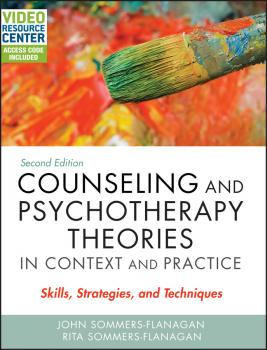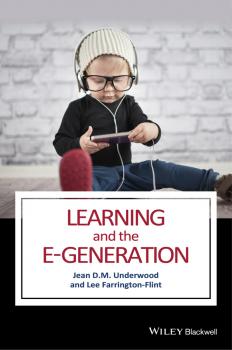Общая психология
Различные книги в жанре Общая психологияAcceptance and Commitment Therapy and Mindfulness for Psychosis
Emerging from cognitive behavioural traditions, mindfulness and acceptance-based therapies hold promise as new evidence-based approaches for helping people distressed by the symptoms of psychosis. These therapies emphasise changing the relationship with unusual and troublesome experiences through cultivating experiential openness, awareness, and engagement in actions based on personal values. In this volume, leading international researchers and clinicians describe the major treatment models and research background of Acceptance and Commitment Therapy (ACT) and Person-Based Cognitive Therapy (PBCT), as well as the use of mindfulness, in individual and group therapeutic contexts. The book contains discrete chapters on developing experiential interventions for voices and paranoia, conducting assessment and case formulation, and a discussion of ways to work with spirituality from a metacognitive standpoint. Further chapters provide details of how clients view their experiences of ACT and PBCT, as well as offering clear protocols based on clinical practice. This practical and informative book will be of use to clinicians and researchers interested in understanding and implementing ACT and mindfulness interventions for people with psychosis.
Veterans and Active Duty Military Psychotherapy Homework Planner
The Veterans and Active Duty Military Psychotherapy Homework Planner provides you with an array of ready-to-use, between-session assignments designed to fit virtually every therapeutic mode. This easy-to-use sourcebook features: 78 ready-to-copy exercises covering the most common issues encountered by veterans and active duty soldiers in therapy, such as anger management, substance abuse and dependence, bereavement, pre-deployment stress, and chronic pain after injury A quick-reference format—the interactive assignments are grouped by behavioral problems including combat and operational stress reactions, postdeployment reintegration, survivor's guilt, anxiety, parenting problems related to deployment, and posttraumatic stress disorder Expert guidance on how and when to make the most efficient use of the exercises Assignments are cross-referenced to The Veterans and Active Duty Military Psychotherapy Treatment Planner—so you can quickly identify the right exercise for a given situation or problem Downloadable assignments—allowing you to customize them to suit you and your clients' unique styles and needs
Counseling and Psychotherapy Theories in Context and Practice. Skills, Strategies, and Techniques
Apply the major psychotherapy theories into practice with this comprehensive text Counseling and Psychotherapy Theories in Context and Practice: Skills, Strategies, and Techniques, 2nd Edition is an in-depth guide that provides useful learning aids, instructions for ongoing assessment, and valuable case studies. More than just a reference, this approachable resource highlights practical applications of theoretical concepts, covering both theory and technique with one text. Easy to read and with engaging information that has been recently revised to align with the latest in industry best practices, this book is the perfect resource for graduate level counseling theory courses in counselor education, marriage and family therapy, counseling psychology, and clinical psychology. Included with each copy of the text is an access code to the online Video Resource Center (VRC). The VRC features eleven videos—each one covering a different therapeutic approach using real therapists and clients, not actors. These videos provide a perfect complement to the book by showing what the different theories look like in practice. The Second Edition features: New chapters on Family Systems Theory and Therapy as well as Gestalt Theory and Therapy Extended case examples in each of the twelve Theory chapters A treatment planning section that illustrates how specific theories can be used in problem formulation, specific interventions, and potential outcomes assessment Deeper and more continuous examination of gender and cultural issues An evidence-based status section in each Theory chapter focusing on what we know from the scientific research, with the goal of developing critical thinking skills A new section on Outcome Measures that provides ideas on how client outcomes can be tracked using practice-based evidence Showcasing the latest research, theory, and evidence-based practice in an engaging and relatable style, Counseling and Psychotherapy Theories in Context and Practice is an illuminating text with outstanding practical value.
Developmental Cognitive Neuroscience. An Introduction
Developmental Cognitive Neuroscience, 4th Edition, is a revised and updated edition of the landmark text focusing on the development of brain and behaviour during infancy, childhood, and adolescence. Offers a comprehensive introduction to all issues relating to the nature of brain-behaviour relationships and development New or greatly expanded coverage of topics such as epigenetics and gene expression, cell migration and stem cells, sleep and learning/memory, socioeconomic status and development of prefrontal cortex function Includes a new chapter on educational neuroscience, featuring the latest findings on the application of cognitive neuroscience methods in school-age educational contexts Includes a variety of student-friendly features such as chapter-end discussion, practical applications of basic research, and material on recent technological breakthroughs
Cognitive Psychology For Dummies
Demystify the core concepts of cognitive psychology Written specifically for psychology students – and not other academics – Cognitive Psychology For Dummies is an accessible and entertaining introduction to the field. Unlike the dense and jargon-laden content found in most psychology textbooks, this practical guide provides readers with easy-to-understand explanations of the fundamental elements of cognitive psychology so that they are able obtain a firm grasp of the material. Cognitive Psychology For Dummies follows the structure of a typical university course, which makes it the perfect supplement for students in need of a clear and enjoyable overview of the topic. The complexities of a field that explores internal mental processes – including the study of how people perceive, remember, think, speak, and solve problems – can be overwhelming for first-year psychology students. This practical resource cuts through the academic-speak to provide a clear understanding of the most important elements of cognitive psychology. Obtain a practical understanding of the core concepts of cognitive psychology Supplement required course reading with clear and easy-to-understand overviews Gain confidence in your ability to apply your knowledge of cognitive psychology Prepare for upcoming exams or topic discussions Cognitive Psychology For Dummies is the perfect resource for psychology students who need a clear and readable overview of the core concepts of cognitive psychology.
Learning and the E-Generation
Learning and the E-Generation examines the impact of new and emerging digital technologies—from computers and tablets to social media and video games—on learners in formal and informal settings. Assesses the psychological factors at play, including social, cognitive, and behavioral characteristics that are influenced by exposure to technology Addresses the risks and benefits of 21st century digital technology on children and young adults Written by two experts in the field who draw on the latest research and practice from psychology, neuroscience, and education Discusses the potential of technology to make the learning process more authentic and engaging, as well as the obstacles which can prevent this from happening effectively
Partners in Play. An Adlerian Approach to Play Therapy
Play therapy expert Terry Kottman and her colleague Kristin Meany-Walen provide a comprehensive update to this spirited and fun text on integrating Adlerian techniques into play therapy. Clinicians, school counselors, and students will find this to be the definitive guide for using Adlerian strategies with children to foster positive growth and effective communication with their parents and teachers. After an introduction to the basics of the approach and the concepts of Individual Psychology, the stages of Adlerian play therapy are outlined through step-by-step instructions, detailed treatment plans, an ongoing case study, and numerous vignettes. In addition to presenting up-to-date information on trends in play therapy, this latest edition emphasizes the current climate of evidence-based treatment and includes a new chapter on conducting research in play therapy. Appendixes contain useful worksheets, checklists, and resources that can be easily integrated into practice. Additional resources related to this book can be found in the ACA Online Bookstore at www.counseling.org/publications/bookstore and on Terry Kottman’s website encouragementzone.com. *Requests for digital versions from the ACA can be found on wiley.com. *To request print copies, please visit the ACA website.
Great Myths of Child Development
Great Myths of Child Development reveals the latest evidence-based science behind the myths and misconceptions about the developing child. Shatters the most commonly-held child development myths Reveals the science behind such topical issues as twin-telepathy, sex-prediction, and imaginary friends Covers hot-button issues like childhood vaccines, spankings, “time-outs,” and breastfeeding of older children Features numerous pop culture references and examples drawn from popular TV shows and movies, such as Duck Dynasty, Modern Family and Mad Men Points to a wealth of supplementary resources for interested parents—from evidence-based treatments and self-help books to relevant websites
Psychological Science Under Scrutiny. Recent Challenges and Proposed Solutions
Psychological Science Under Scrutiny explores a range of contemporary challenges to the assumptions and methodologies of psychology, in order to encourage debate and ground the discipline in solid science. Discusses the pointed challenges posed by critics to the field of psychological research, which have given pause to psychological researchers across a broad spectrum of sub-fields Argues that those conducting psychological research need to fundamentally change the way they think about data and results, in order to ensure that psychology has a firm basis in empirical science Places the recent challenges discussed into a broad historical and conceptual perspective, and considers their implications for the future of psychological methodology and research Challenges discussed include confirmation bias, the effects of grant pressure, false-positive findings, overestimating the efficacy of medications, and high correlations in functional brain imaging Chapters are authored by internationally recognized experts in their fields, and are written with a minimum of specialized terminology to ensure accessibility to students and lay readers
Boundary Issues in Counseling. Multiple Roles and Responsibilities
Fully revised in accordance with the 2014 ACA Code of Ethics and the current ethical codes of other mental health organizations, Boundary Issues in Counseling reflects the helping profession’s most up-to-date thinking on this topic and offers a wide range of opinions and perspectives. Ethics experts Barbara Herlihy and Gerald Corey, along with 40 guest contributors, share their thoughts on the ethical issues surrounding sexual dual relationships; multiculturalism and social justice; counselor education, supervision, and consultation; group counseling; couples and family counseling; and school counseling. In addition, coverage extends to specialty areas, such as disaster mental health, private practice, addictions and rehabilitation counseling, rural practice, counseling in the military and forensic counseling. This highly regarded book is essential reading for counselors struggling to find a clear personal position on the myriad issues that can arise with multiple relationships. It is also an ideal supplemental text for courses in ethics and professional issues, as well as for practicum and internship seminars to train the next generation of counselors. Requests for digital versions from the ACA can be found on wiley.com. To request print copies, please visit the ACA website.









